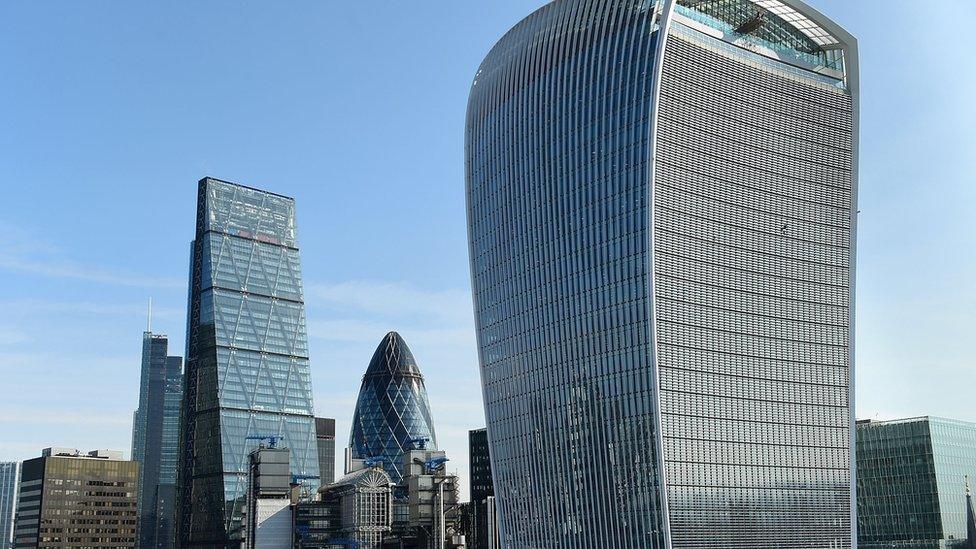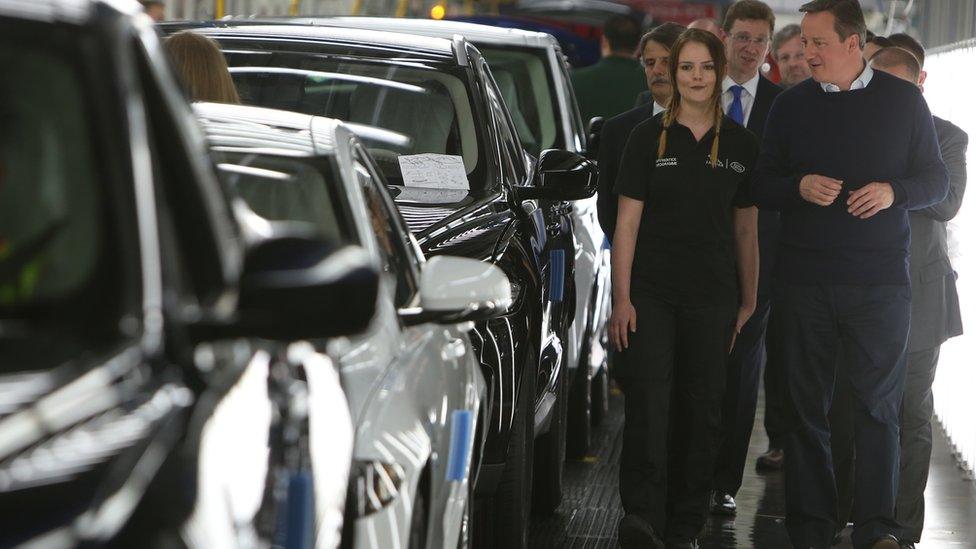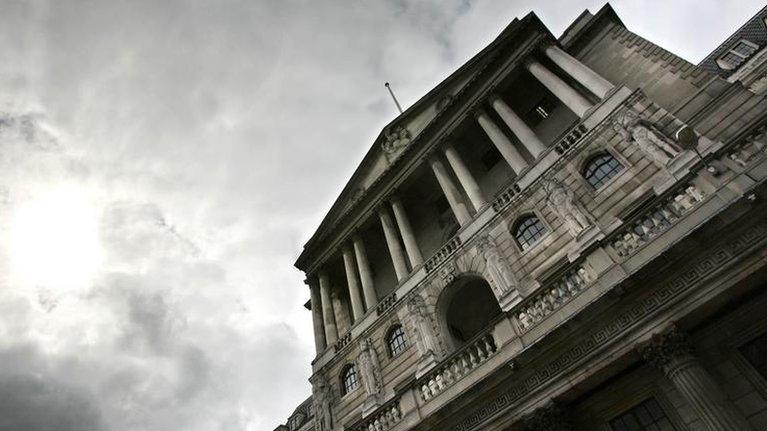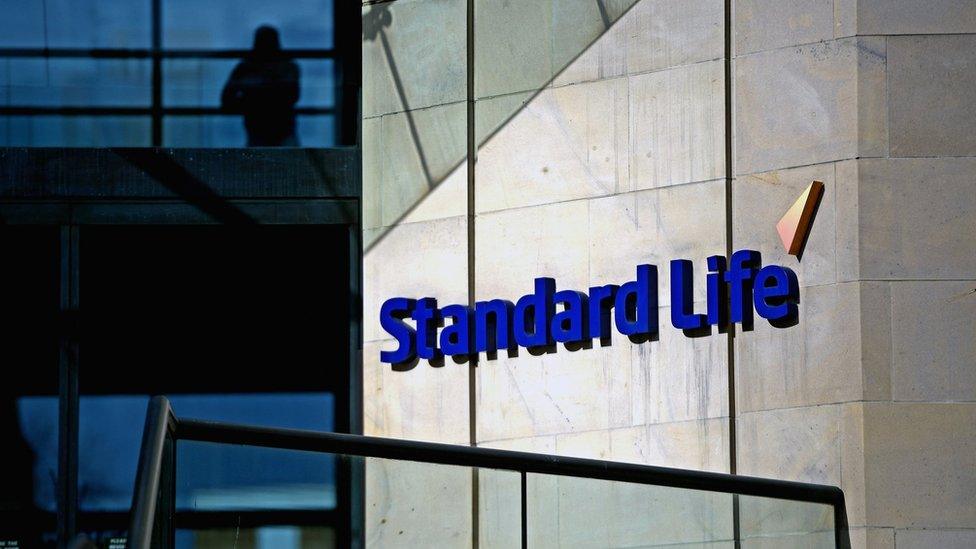Bank of England warns property is a key risk to economy
- Published

Foreign investors helped to finance 20 Fenchurch Street (right) also referred to as the Walkie Talkie building
The Bank of England has warned that commercial property is a key risk to the economy following the Brexit vote.
The Bank avoids using the word "crash".
But the concern, put simply, is that the market for commercial property - from warehouses to office space to retail parks - is in deep trouble.
Foreign investors purchasing commercial property have made up 45% of all commercial property bought and sold since 2009.
Even before the Brexit vote, that inflow of money to the UK had slowed down, falling by 50% in the first quarter of 2016.
'Marked adjustment'
The Financial Policy Committee warns that: "Valuations in some segments of the market, notably the prime London market, had become stretched."
To translate that from Bank of England-speak: prices have been too high.
The Bank's Financial Stability Report, external points out that share prices of real estate investment trusts have fallen sharply and warned of the risk of "future marked adjustment in commercial real estate prices".
To translate that from Bank of England speak: there is a risk that commercial property prices may plummet.
Much of the most valuable prime London commercial property is, of course, in the City, where some foreign investors such as banks and investment managers have helped to fund an intense and ongoing bout of construction, symbolised by iconic buildings with nicknames such as the Gherkin, the Cheese-grater or the Walkie Talkie.
Current account deficit
The foreign money coming in to the UK is crucial in another respect.
Ever since the 1980s, the UK has earned far less selling goods and services abroad than it has spent on imports, creating a "current account deficit". Crudely, there's more money going out than coming in.
For years, we have made up for that by attracting money to the UK in two ways. First, foreign investors have been willing to buy shares in UK companies and lend money to our government.
And second, foreign companies have been ready to invest directly by, for example, constructing new buildings in the City of London, or investing in businesses like Jaguar Land Rover to turn them into a success.

David Cameron tours the Jaguar Land Rover factory in Solihull
The FPC report says all inflows of foreign investment in British companies slowed down in the run-up to the referendum.
Investors now believe they are taking a bigger risk than before investing in UK companies, which is reflected in share prices and the biggest two-day fall in the value of sterling in more than 40 years.
There were some comforting words in the report. The banks, for example, have been stress tested against a scenario where commercial property falls by 30% and residential by 35%, with a severe recession.
The banks have £600bn in "high-quality liquid assets" - such as shares in top companies, government bonds and cash. They could withstand losses twice as large as those endured in the crisis of 2008 without running out of money.
Comforted by that, the Bank of England has judged that the banks no longer need to build up £150bn as a "counter-cyclical capital buffer". The counter-cyclical buffer is simply cash which is set aside in good times so that it can be made available when the down-swing comes.
The fact that precisely that is now happening - £150bn is being made available - suggests that the Bank fears the down-swing is now here.
- Published5 July 2016

- Published4 July 2016
